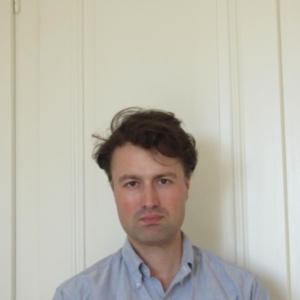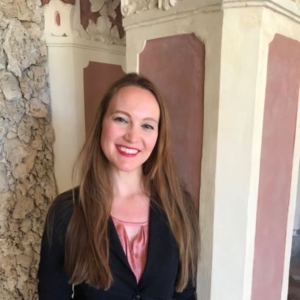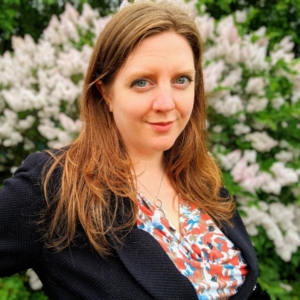 THP Junior Fellows (2021-2023).
THP Junior Fellows (2021-2023).
JUNIOR FELLOWS
Graham Clure
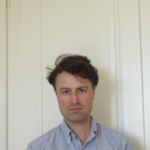
Graham Clure received his B.A. in Sociology and Philosophy from the University of Wisconsin-Madison in 2006, his M.Phil. in Political Thought and Intellectual History from the University of Cambridge in 2007, and his Ph.D. in Political Science from Harvard University in 2015. From 2016-17 he worked at the College of Europe at Natolin (Warsaw) and, from 2017-2021 he has worked in the Department of History at the University of Lausanne, as a Senior Swiss National Science Foundation Researcher.
At Lausanne, he has been affiliated with a SNSF project entitled “Enlightenment Agrarian Republics: From the Vaud to Poland and America” directed by Prof. Béla Kapossy. During this time, he has primarily been engaged in writing a monograph, entitled Rousseau’s Last Masterpiece: The Political and Economic Institutions of Poland, which is a study of Jean-Jacques Rousseau’s political thought seen from the vantage point of his last major work on politics, the Considerations on the Government of Poland.
From autumn 2021, he will be a Fellow in the Fondazione 1563’s Turin Humanities Program, where he will undertake a project entitled “Rousseau’s Global Legacy: The Science of Political Right from Poland to America.” The project revolves around the Physiocrat Pierre-Samuel Du Pont de Nemours, who was drawn into Polish reform politics in the early 1770s, at the same time as Rousseau. Unlike Rousseau, the younger Du Pont subsequently went on to participate in reform movements in both his native France and in the Americas, right up until his death in 1817. Du Pont collaborated with many of the leading intellectual and political figures of his day, and his career provides an important window onto the nineteenth-century legacy of Enlightenment debates about economic development and constitutional government, both of which were closely connected to something that Rousseau referred to as the “great and useless science of political right.”
Ariane Fichtl
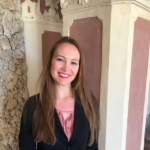
Ariane Viktoria Fichtl studied Classics, Archeology and Modern History at the University of Augsburg (Germany) and Kwansei Gakuin University (Japan). She graduated in 2013 with a Master’s thesis that compared the Ancient Greek and Roman oratorical strategies of legitimating power in the second century AD.
In 2018, Ariane completed her binational Ph.D. in the History of Ideas at the Université de Lille (France), in cotutelle with the University of Augsburg (Germany). Her thesis was published by Classiques Garnier (Paris) in January 2021 carrying the title La Radicalisation de l’idéal républicain. Modèles antiques et la Révolution française.
From 2014 to 2018, Ariane was an early career fellow at the Institute Historique Allemand in Paris, as well as with Campus France and l’UFA (Université franco-allemande). She has presented her research at various conferences in Germany, France, and the UK. Her first English-language book chapter on Ancient Parallels to Eighteenth-Century Concepts of Celebrity appears in July 2021 within the collective volume Celebrity Across the Channel, 1750-1850 (University of Delaware Press).
In 2019 Ariane won the British Society for Eighteenth Century Studies’ Committee Award for presenting a research project on the reception of the Japanese shoguns’ seclusion policy in eighteenth-century Europe that was pioneering a new area of eighteenth-century studies.
From April 2020 to June 2021, Ariane was a visiting fellow at the Institute for European Cultural Studies at Augsburg, and a short-term visiting fellow at the European University Institute in Florence.
Ariane’s main area of research is the reception of classical republican ideas and culture in eighteenth-century France and the evolution of a more modern republican language in Enlightenment Europe and America, with a focus on the global reception of the Déclaration des droits de l’homme et du citoyen (1789) in the late eighteenth and nineteenth centuries.
Her interests include the history of political thought, the history of transatlantic and global exchanges, and democratic republicanism.
From September 2021 onwards, Ariane will start her project The Rights of Man in a Transatlantic Republic. French Migrants and the Birth of the Democratic-Republican Party in the United States as part of the Fondazione 1563’s Turin Humanities Programme project Enlightenment legacy: the rights of man in a global perspective (2021-2023) with Professor Vincenzo Ferrone (Turin University).
Brynne McBryde

Brynne McBryde graduated from the University of Michigan with a dual concentration in the history of art and English language and literature. She obtained a master’s degree in art history at the George Washington University and completed her doctoral studies in art history at the Pennsylvania State University, presenting her dissertation “Public Bodies: the Nude and Public Health in Nineteenth-Century France” in 2020, which was recognized with a Penn State Alumni Association Dissertation Award. Her research has been supported by numerous grants and fellowships including a Pennsylvania State University Art History Dissertation Fellowship and a Waddell Biggart Graduate Fellowship.
Brynne’s work focuses on the intersections of medicine, race, sexuality, and visuality in the nineteenth century by revealing medical illustrations as important tools in the dissemination of scientifically-defined identity categories. She examines photographs, intaglio prints, drawings and oil paintings as well as medical textbooks, journals, and popular health and hygiene pamphlets. Recently she has become increasingly interested in the networks of knowledge and social identities created by the circulation of these texts and the rhetoric of scientific medicine that accompanied them during and after the Enlightenment. Her current book project, on the subject “Enlightenment Medical Illustration and the Embodiment of Biological Myth,” will be the focus of her work as a Junior Fellow in the Turin Humanities Programme of Fondazione 1563 per l’Arte e la Cultura della Compagnia di San Paolo.
Tom Pye
 Tom Pye works on the political and intellectual history of Britain in the eighteenth and nineteenth century. He is particularly interested in the history of historical ideas, and has also published more broadly in the history of political thought for Modern Intellectual History.
Tom Pye works on the political and intellectual history of Britain in the eighteenth and nineteenth century. He is particularly interested in the history of historical ideas, and has also published more broadly in the history of political thought for Modern Intellectual History.
His doctoral thesis explores the relationship between the Scottish Enlightenment and the English constitution, and tries to explain why this might matter for the way we think about eighteenth-century British history. He is currently preparing the manuscript for a book.
The project he will begin in Turin examines how eighteenth-century ideas about property, constitution, citizenship, and history played out in the conquest and settlement of Britain’s ‘second’ empire. In doing so, it hopes to contribute a British chapter to a pan-European story about Enlightenment and its legacies.



